 Photo: Secretary McIlwain joins leaders from the Turner Station community at National Night Out in the summer of 2023.
Photo: Secretary McIlwain joins leaders from the Turner Station community at National Night Out in the summer of 2023.
In Maryland, under the leadership of Governor Wes Moore and Secretary Serena McIlwain, the Maryland Department of the Environment is committed to addressing injustices that have occurred throughout history in communities located next to industry that have been exposed to higher levels of pollution.
Everyone deserves clean land, clean water and clean air.
We must ensure that communities of every culture, race, ethnicity, and socioeconomic background get fair protection from environmental and health hazards, as well as equal access to the decision-making process for environmental policies.
Our state, nation and world is increasingly dealing with severe storms and other effects of climate change, such as extreme heat events, as well as pollution from industry and poor air quality from wildfires. The people most affected by these environmental challenges are our most underserved and overburdened communities in Maryland.
Environmental justice is defined under Maryland state law as "equal protection from environmental and public health hazards for all people regardless of race, income, culture, and social status."
The Maryland Department of the Environment is addressing these environmental disparities by building relationships with communities and making sure they have the tools and knowledge to be involved in the processes.
The department has taken action to make the following improvements to operations for environmental justice:
Find out more about our plans to address environmental justice in Maryland:
Environmental Justice Policy and Implementation Plan 2022.pdf
Environmental Justice Policy and Implementation Plan 2020.pdf
Justice 40 in Maryland
Justice 40 is a federal initiative from the Biden-Harris Administration’ created to address decades of underinvestment in disadvantaged communities.
The initiative has a goal that 40 percent of certain federal investments flow to communities that are marginalized, underserved, and/or overburdened by pollution.
Federal Technical assistance and support is available to communities to identify and obtain grant funding, including:
https://www.epa.gov/environmentaljustice
Federal and State policy also requires engagement and stakeholder consultation to ensure that community stakeholders are meaningfully involved in determining program benefits and for programs to report data on the benefits directed to communities.
Maryland consistently exceeds the Justice 40 goals and is going above and beyond.
Photo: Secretary
McIlwain meets students at Saint Frances Academy in Baltimore at an event to install electric vehicle chargers.
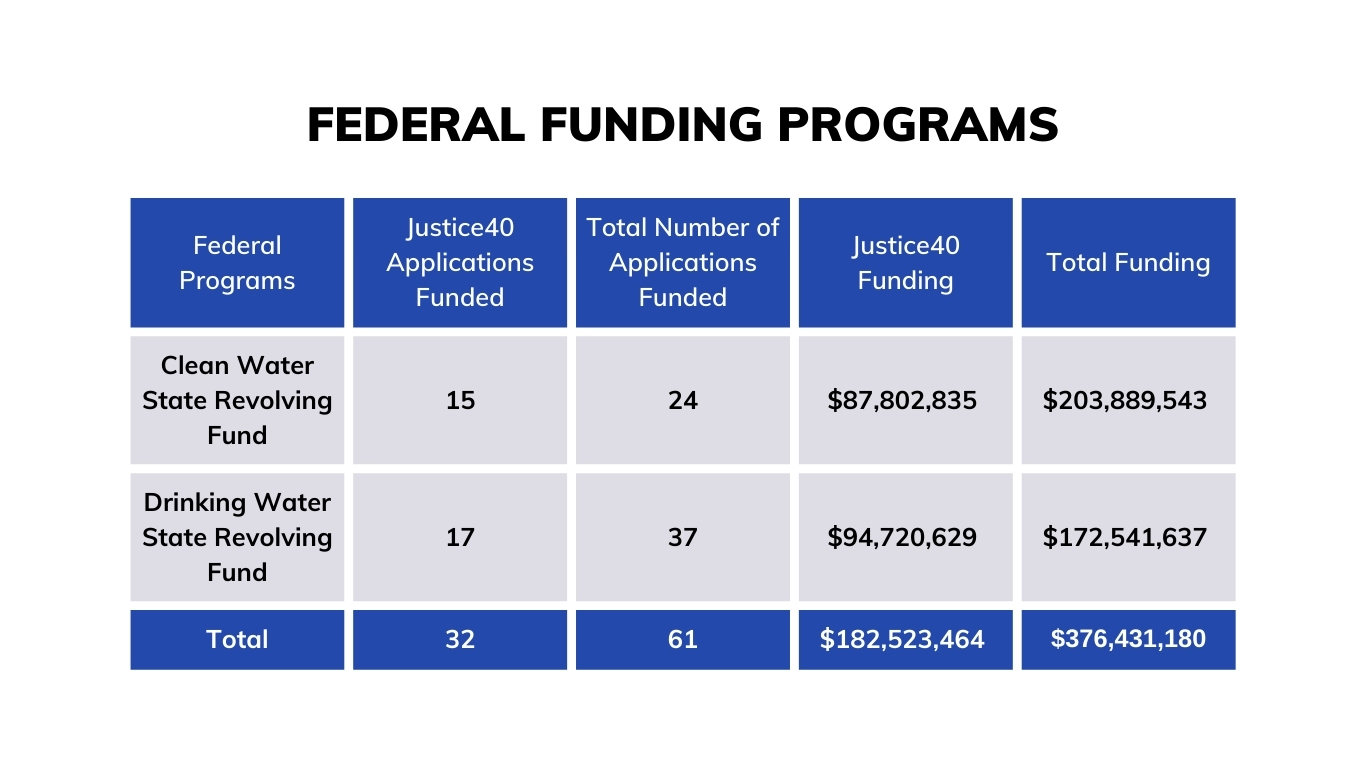
Table 1: The number of applications from overburdened, underserved, and
disadvantaged communities receiving federal-level funding compared to the total applications funded, and the overall amount of funding provided.
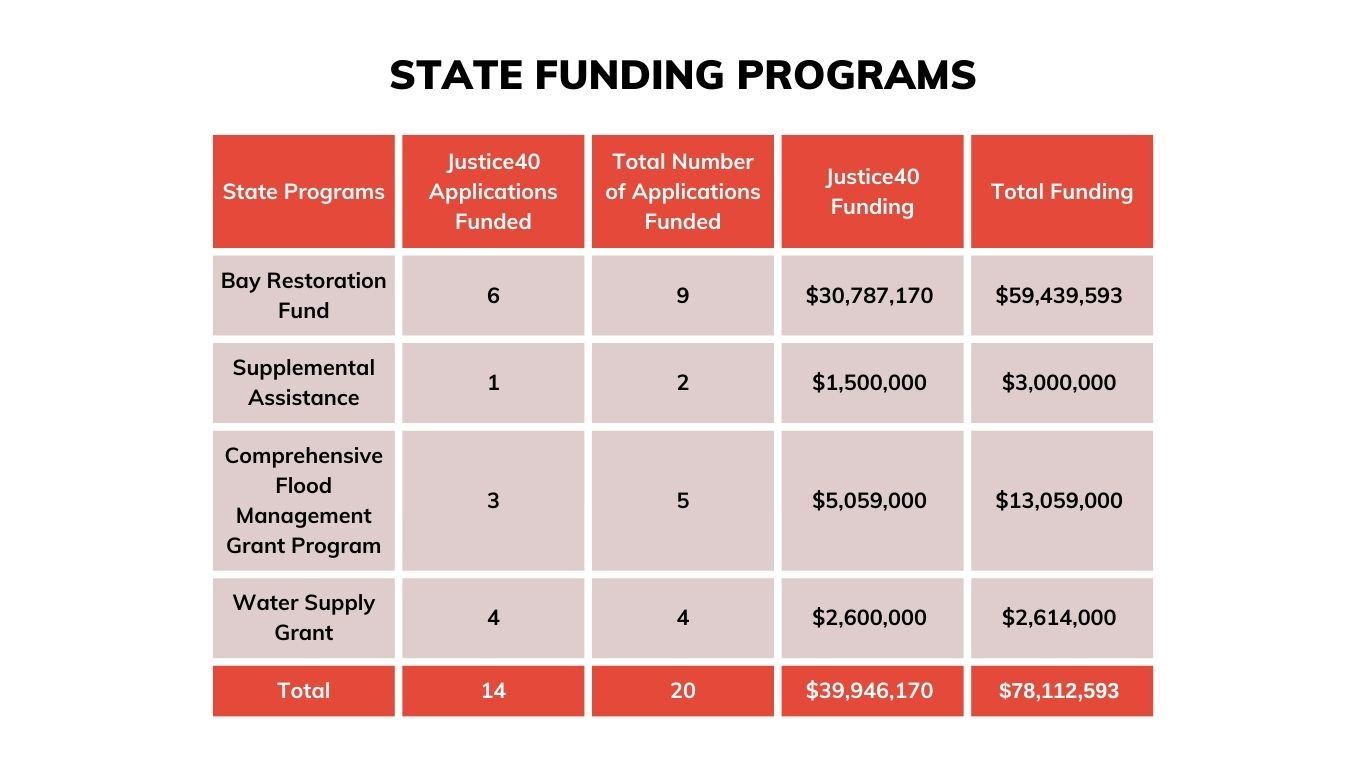
Table 2: The number of applications from overburdened, underserved, and disadvantaged communities receiving state-level funding compared to the total applications funded, and the overall amount of funding provided.
 Table 3: Overview of both state and federal funding given to overburdened, underserved, and disadvantaged community applications in comparision to all other applications.
Table 3: Overview of both state and federal funding given to overburdened, underserved, and disadvantaged community applications in comparision to all other applications. 
Diagram 1: Percentage comparisons between federal program applications and the funding distributed between overburdened, underserved, and disadvantaged community applications and all other applications.
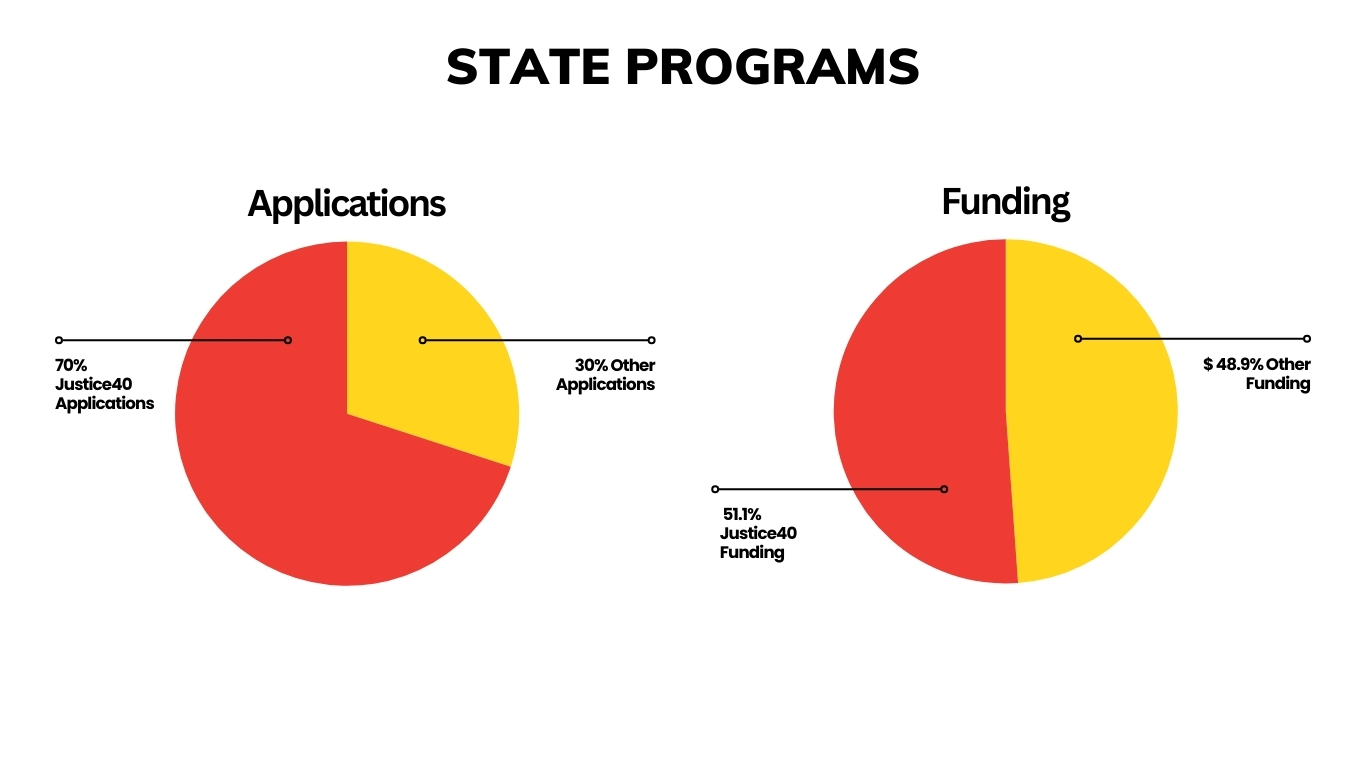
Diagram 2: Percentage comparisons between state program applications and the funding distributed between overburdened, underserved, and disadvantaged community applications and all other applications.
In the News
Secretary McIlwain Appoints First Assistant Secretary for Environmental Justice
Study by Curtis Bay Community, Student Scientists and MDE Measures Coal Dust in Air
Climate Pollution Reduction Plan Includes Environmental Justice Initiatives
Our Environmental Justice Team
Brandon Brooks
Environmental Justice Coordinator
(443) 615-2565
Noble Smith
Environmental Justice Officer - Air and Radiation
(410) 537-3041
For general questions about the environment justice, requesting a listening session, and other topics, please email us.
ej.mde@maryland.gov
Report Environmental Emergency
(866) 633-4686